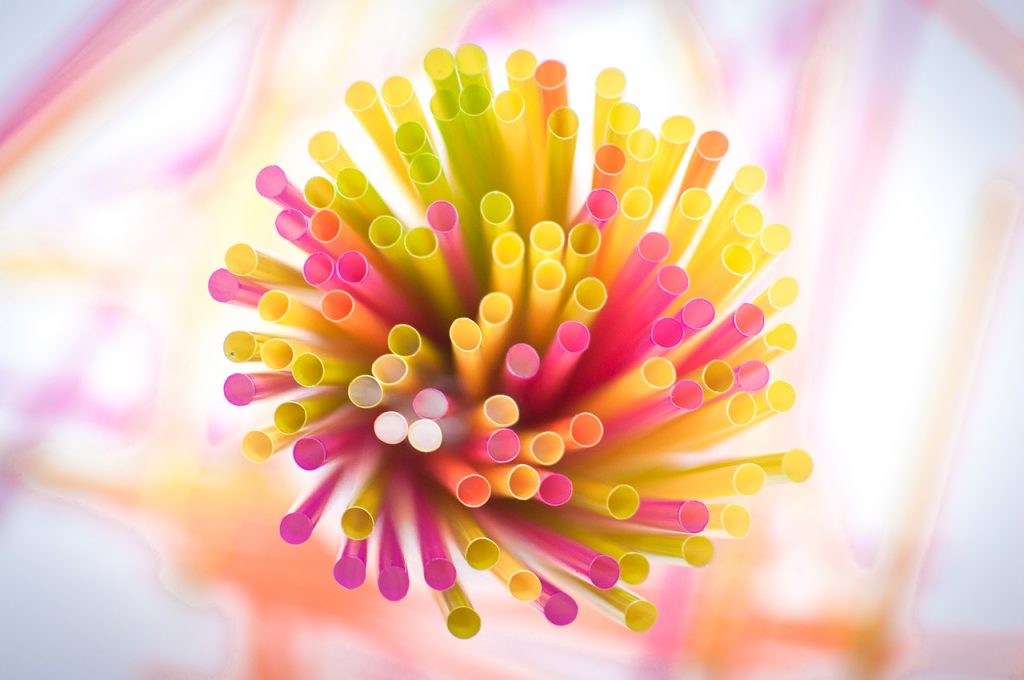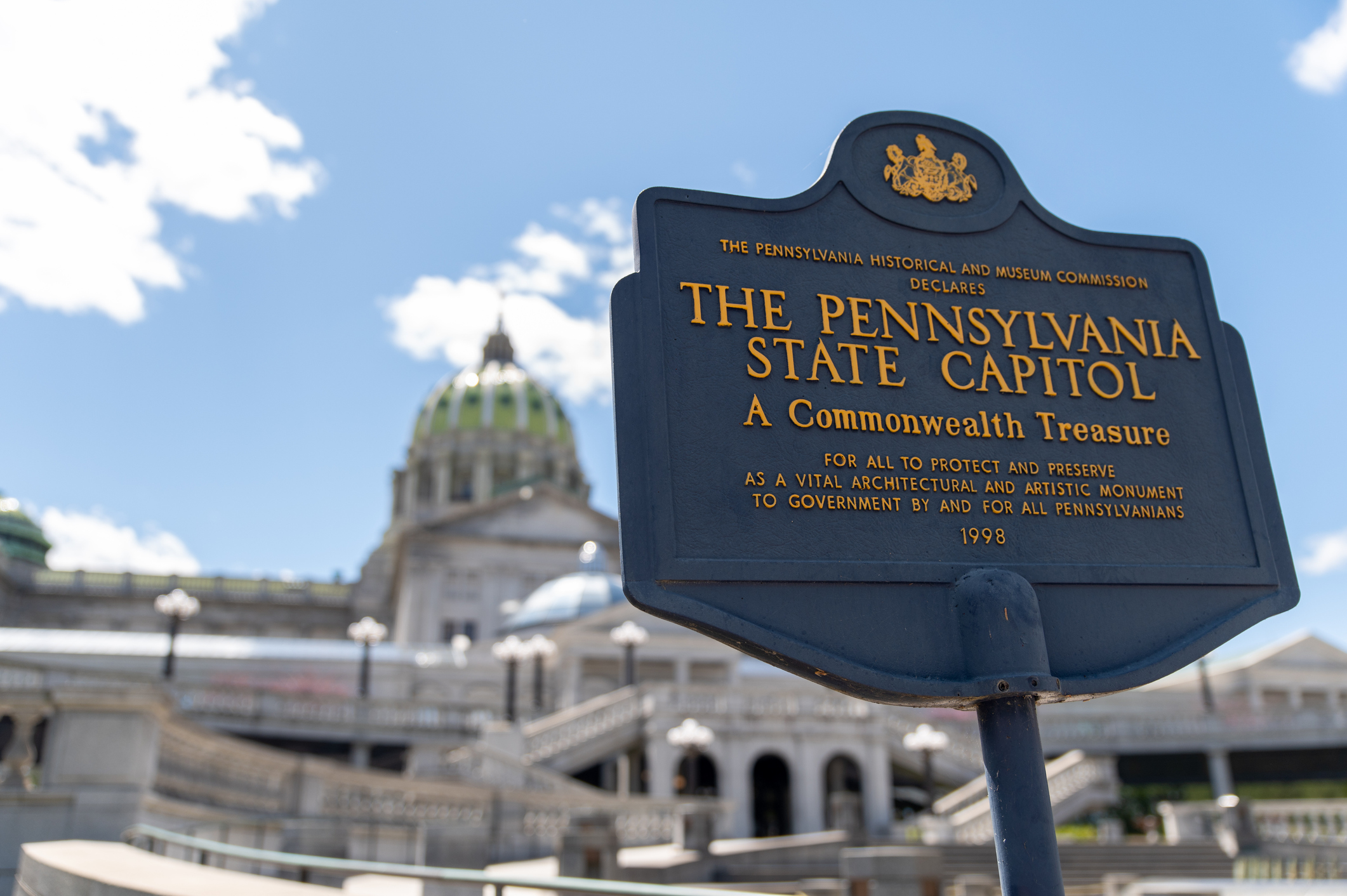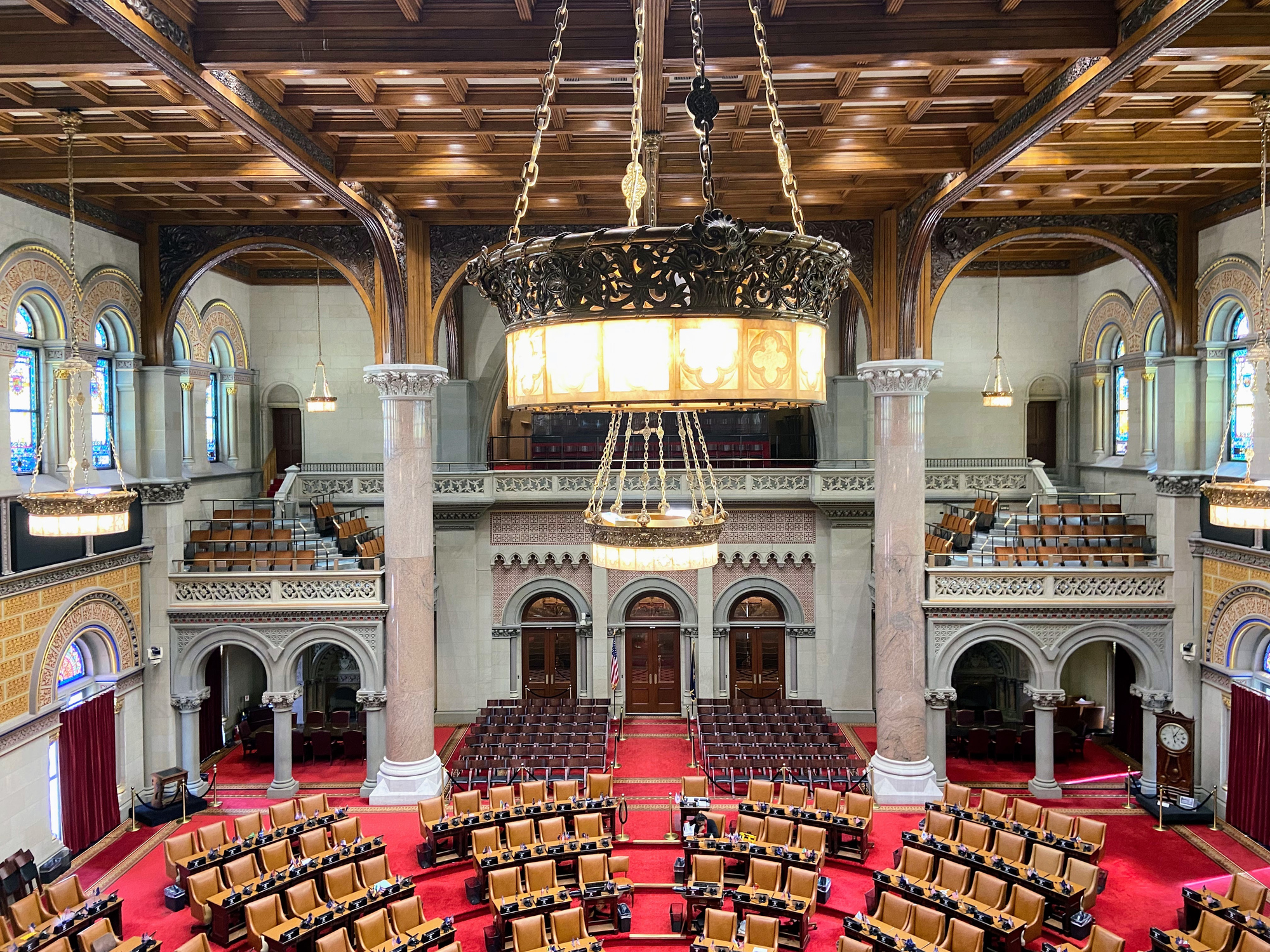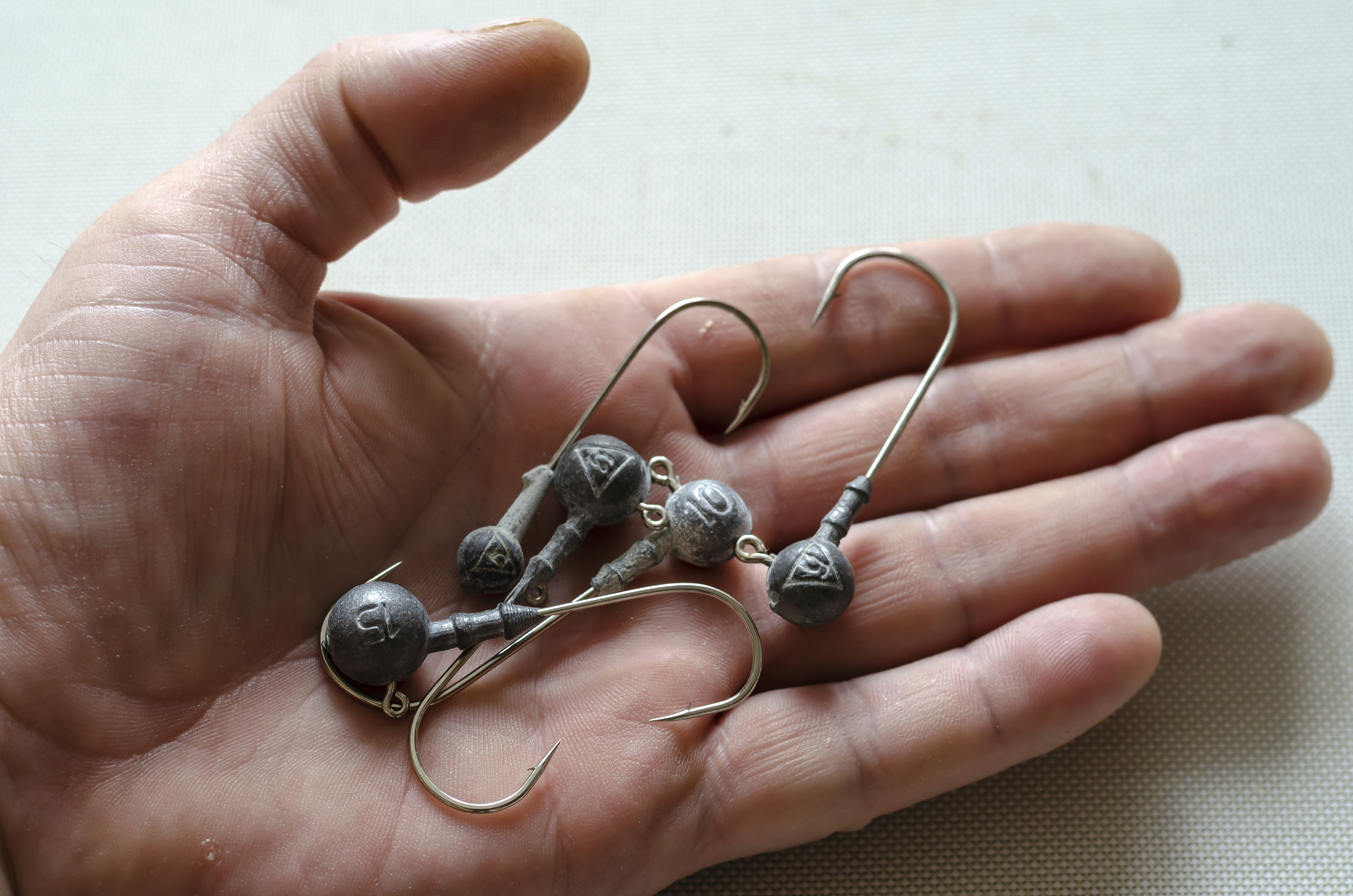Earlier this year, DMGS discussed states and municipalities across the country banning plastic bags in force. In addition to putting prohibitions on plastic bags, states and localities have also been looking at plastic straw bans as advocates look to reduce plastic pollution as plastics are not biodegradable and cannot break down naturally. It is estimated that Americans use 500 million drinking straws every day. While some legislation only contains plastic straw bans, other legislation loops plastic straws in with other plastic prohibitions.
Connecticut
Lawmakers in Connecticut introduced HB 6502 earlier this year to prohibit the automatic distribution of single-use plastic straws at certain eating establishments. Specifically, the bill would, effective January 1, 2022, prohibit full-service restaurants from providing customers with single-use plastic straws unless they request it or if the customer has a disability. The legislation defines a “full-service restaurant” as an establishment that primarily services food to be consumed on-site and where an employee does the following: (1) escorts and seats the customer, (2) takes the customer’s food and beverage order after the customer is seated, (3) delivers the order and any requested related items to the customer, and (4) brings the check for the order to the customer’s table.
Violations under the bill would result in a restaurant owner or operator receiving warnings for a first or second violation and a fine for a third violation. The fine would be $25 for each day of the violation, up to $300 in a single year. Enforcement power would belong to a municipal or district health department that has jurisdiction over the restaurant. The plastic straw ban bill additionally does not prohibit municipalities from adopting or implementing ordinances or rules that further restrict a full-service restaurant from providing customers single-use plastic straws, as long as the ordinance or rule does not prohibit a restaurant from providing a single-use plastic straw to someone with a disability.
HB 6502 additionally would phase out the use of particular polystyrene trays and food containers.
Maine
In March 2021, Maine lawmakers introduced LD 602, which would prohibit the manufacture, sale, and distribution, at retail or wholesale, of single-use plastic straws, splash sticks, and beverage lid plugs made entirely or partly of plastic.
The legislation further prohibits food and eating establishments from providing such items to customers at a point of sale or making them available to customers otherwise. However, food and eating establishments are allowed to provide single-use drinking straws, splash sticks, or beverage lid plugs not made of plastic only upon a customer’s request. The establishment must further collect a fee from the customer of no less than $0.05 for each item provided.
Massachusetts
Massachusetts lawmakers introduced H. 998 earlier this year to restrict the distribution of single-use plastic straws by prohibiting food establishments from providing such straws to customers unless requested by the customer. H. 998 defines a “food establishment” as an operation that stores, prepares, packages, serves, vends, or otherwise provides food for human consumption, including but not limited to any establishment requiring a permit to operate under the State Food Code.
The bill states that such straws shall not include a straw made from non-plastic materials, such as paper, pasta, sugar cane, wood, or bamboo.
In mid-June, lawmakers scheduled a virtual hearing to address the plastic straw ban legislation. However, the bill has not seen any action since.
Mississippi
This past session, Mississippi lawmakers introduced Senate Bill 2071, which would have prohibited a food establishment from providing a single-use plastic straw unless a consumer requested such a straw.
The bill’s definition of a “food establishment” is comprehensive. The bill’s definition of a food establishment is as follows: all sales outlets, stores, shops, or other places of business located within the State of Mississippi that operate primarily to sell or convey food directly to the ultimate consumer, including any place where food is prepared, mixed, cooked, baked, smoked, preserved, bottled, packaged, handled, stored, manufactured and sold or offered for sale, including, but not limited to, any fixed or mobile restaurant, drive-in, coffee shop, cafeteria, short order cafe, delicatessen, luncheonette, grill, sandwich shop, soda fountain, tavern, bar, cocktail lounge, nightclub, roadside stand, prepared food take-out place, catering kitchen, commissary, grocery store, public food market, food stand or similar place in which food or drink is prepared for sale or for service on the premises or elsewhere, and any other establishment or operation where food is processed, prepared, stored, served or provided for the public for charge.
SB 2071 died in committee in February 2021.
New York
Two companion bills in New York have been introduced this year related to plastic straws. A207 and S1505 would allow restaurants to only provide single-use plastic straws unless requested by a customer. The legislation otherwise prohibits restaurants from providing customers with single-use plastic straws or single-use plastic stirrers. Further, the bill specifies that restaurants providing compostable straws or stirrers to customers must have access to curbside food waste collection for composting.
The bills define a restaurant as any diner or other eating or beverage establishment that offers food or beverages for sale to the public, guests, members, or patrons, whether consumption occurs on or off the premises.
Neither bill has advanced this session.
Rhode Island
In July, Governor Daniel McKee signed House Bill 5131/ Senate Bill 155 into law. The new law prohibits a food service establishment from providing a single-use plastic straw to a consumer unless the consumer requests it. The bill will take effect January 1, 2022, and tasks the director of health with promulgating and adopting rules and regulations to enforce the new plastic straw ban.
Rhode Island’s new plastic straw ban defines a “single-use plastic straw” as a single-use, disposable tube made predominantly of plastic derived from either petroleum or a biologically based polymer, such as corn or other plant sources, used to transfer a beverage from a container to the mouth of the person drinking the beverage. Single-use straws, under the bill, do not include a straw made from non-plastic materials, including, but not limited to, paper, pasta, sugar cane, wood, or bamboo.
The bill further defines a “food service establishment” as any fixed or mobile restaurant, coffee shop, cafeteria, short-order cafe, luncheonette, grill, tearoom, sandwich shop, soda fountain, tavern; bar, cocktail lounge, night club, roadside stand, industrial feeding establishment, cultural heritage education facility, private, public or nonprofit organization or institution routinely serving food, catering kitchen, commissary or similar place in which food or drink is prepared for sale or for service on the premises or elsewhere, and any other eating or drinking establishment or operation where food is served or provided for the public with or without charge.
Latest News
Photo credit: iStock.com/Hamburg Studios As Pennsylvania continues to navigate an evolving energy landscape, state leaders are proposing new approaches to ensure reliability, affordability, and sustainability. Governor Josh Shapiro recently announced his “Lightning Plan”, a six-part [...]
Photo credit: iStock.com/Ray Tan As the impacts of climate change intensify, several U.S. states are taking legislative steps to address the mounting costs of adaptation and resilience. New York, New Jersey, and Vermont have recently [...]
Photo credit: iStock.com/Mikhail Dmitriev State lawmakers have taken legislative action to protect wildlife, including birds such as loons and swans, from lead poisoning. We have seen states pass laws banning lead sinkers or painted lead [...]
Photo credit: iStock.com/krblokhin Solar energy deployment has continued to increase, but the spread of new projects is not comprehensive. The National Renewable Energy estimates that 42% of households cannot access behind-the-meter solar. To address the [...]







Stay In Touch